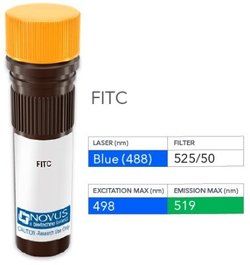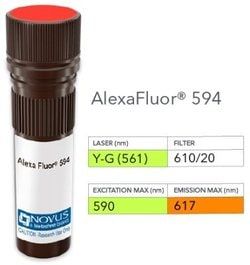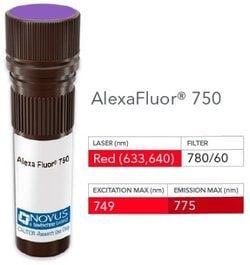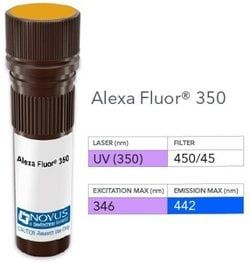Actin (Muscle Specific) Antibody (SPM160), FITC, Novus Biologicals™
Manufacturer: Novus Biologicals
Select a Size
| Pack Size | SKU | Availability | Price |
|---|---|---|---|
| Each of 1 | NB005844-Each-of-1 | In Stock | ₹ 57,494.00 |
NB005844 - Each of 1
In Stock
Quantity
1
Base Price: ₹ 57,494.00
GST (18%): ₹ 10,348.92
Total Price: ₹ 67,842.92
Antigen
Actin (Muscle Specific)
Classification
Monoclonal
Conjugate
FITC
Formulation
PBS with 0.05% Sodium Azide
Gene Alias
ACTA, ACTC, actin, alpha 2, smooth muscle, aorta, actin, alpha cardiac muscle 1, actin, alpha skeletal muscle, actin, aortic smooth muscle, ACTSA, alpha-cardiac actin, ASD5, ASMA, Cell growth-inhibiting gene 46 protein, CFTD, CFTD1, CFTDM, CMD1R, CMH11, MPFD, NEM1, NEM2, NEM3, nemaline myopathy type 3
Host Species
Mouse
Purification Method
Protein A or G purified
Regulatory Status
RUO
Primary or Secondary
Primary
Target Species
Human, Rat, Rabbit
Isotype
IgG1 κ
Applications
Flow Cytometry, Immunohistochemistry, Immunocytochemistry, Immunofluorescence, Immunohistochemistry (Paraffin)
Clone
SPM160
Dilution
Flow Cytometry, Immunohistochemistry, Immunocytochemistry/Immunofluorescence, Immunohistochemistry-Paraffin, Immunohistochemistry-Frozen
Gene Accession No.
P62736, P68032, P68133
Gene Symbols
ACTA1
Immunogen
SDS extract of human myocardium.
Quantity
0.1 mL
Research Discipline
Angiogenesis, Cancer, Cell Biology, Cellular Markers, Stem Cell Markers
Test Specificity
This antibody recognizes actin of skeletal, cardiac, and smooth muscle cells. It is not reactive with other mesenchymal cells except for myoepithelium. Actin can be resolved on the basis of its isoelectric points into three distinctive components: alpha, beta, and gamma in order of increasing isoelectric point. Anti-muscle specific actin recognizes alpha and gamma isotype of all muscle groups. Non-muscle cells such as vascular endothelial cells and connective tissues are non-reactive. Also, neoplastic cells of non-muscle-derived tissue such as carcinomas, melanomas, and lymphomas are negative. It stains tumors of smooth muscle (leiomyomas and leiomyosarcomas) as well as skeletal muscle (rhabdomyomas and rhabdomyosarcomas).
Content And Storage
Store at 4°C in the dark.
Related Products
Description
- Actin (Muscle Specific) Monoclonal specifically detects Actin (Muscle Specific) in Human, Rat, Rabbit samples
- It is validated for Flow Cytometry, Immunohistochemistry, Immunocytochemistry/Immunofluorescence, Immunohistochemistry-Paraffin.




